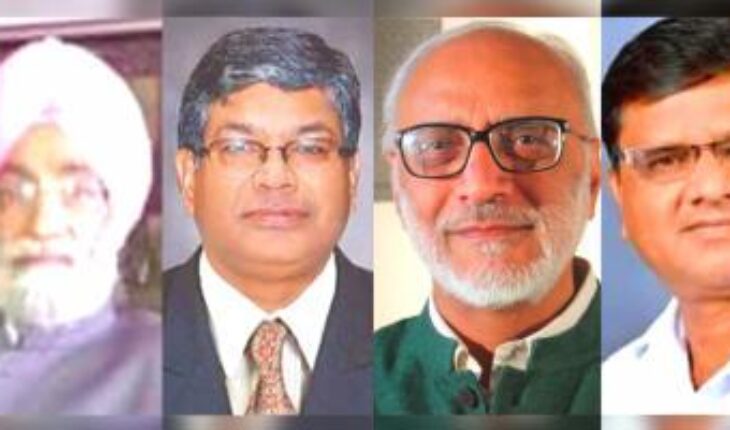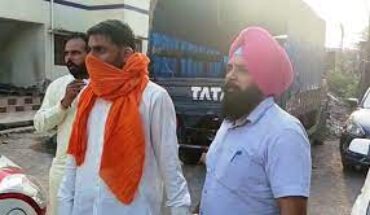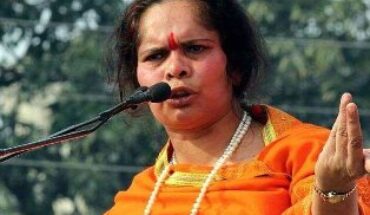Chhavi Bhatia
New Delhi—The Supreme Court while putting the three farm laws on hold, also appointed a four-member panel to resolve the ongoing standoff between the farmers and the government Tuesday. The committee, however, has not found any favour with the farmers as most of the members have been vocal supporters of the controversial farm law in the past, FW has found out. The newly constituted panel includes two farm leaders and two agricultural experts. We bring a lowdown on the members to understand where the farmers’ scepticism stem from.
Ashok Gulati: An agricultural economist and former chairperson of the Commission for Agricultural Costs and Prices, he has written opinion pieces in national dailies including the Indian Express. The opening lines of one of his authored critiques in May 2020 read such, “The Narendra Modi government deserves compliments for finally introducing reforms in the country’s agri-marketing system.” He backed the reforms in what could be “a harbinger of major change in agri-marketing”. In yet another commentary piece ‘Challenges to farm bills harken to socialist era, attempt to undo agriculture’s 1991 moment’, he argued that the farmers’ protest is “90 per cent political and only 10 per cent economics, if at all”.
In December, he told the Wire that the government should suspend the laws for six months but not repeal them and also compensate the farmers. Before that, in October 2020, he explained for the same newspaper why the farm bills are a step in the right direction in an opinion article with the same title.
In his latest write-up dated January 4 for IE titled ‘To help farmers, right approach is through Farmer Producer Organisations, not APMC mandis’, he contends that repealing these farm laws would be like “robbing more than 90 per cent of farmers — who never gained from the MSP system and who are largely small and marginal — of their rights”.
Gulati was honoured with the Padma Shri by the President in 2015. He is now the Infosys Chair Professor for Agriculture at the Indian Council for Research on International Economic Relations.
Anil Ghanvat: He is the president of the Shetkari Sanghatan, a Maharashtra-based farmers’ organisation founded by late farmer leader Sharad Joshi. Ghanvat is vehemently opposed to the farmers’ main demand—revoking the laws, and recommends amendments to reach a solution. In October, he even held a ‘protest’ in favour of the agriculture laws while in December, the Hindu Businessline quoted him as saying, ““The government can stay implementation of the laws and amend them after discussions with farmers. However, there is no need to withdraw these laws, which have opened up opportunities for farmers.”
After his meeting with Agriculture minister Narendra Tomar later in December in support of the laws, he told the Indian Express that “for the first time in 40 years” farmers had a chance to benefit from the open market.
Dr Pramod Kumar Joshi: This agricultural economist and former director of the South Asia International Food Policy Research Institute has written various opinion pieces advocating the farm laws. In December, he co-authored an article for Financial Express in which he accused the farmers for “changing the goalposts” before every negotiation. He further indicted the farmers saying they were making “unfair claims” of laws being framed without consulting them.
The same month, Joshi who is also the honorary director, Centre for Agricultural Economics Research (AERC), University of Delhi told Gaon Connection that “it is very difficult to make MSP mandatory by law. It does not exist anywhere in the world. A law on MSP would mean the right to MSP. Those who do not get MSP would then be able to move court, and those not giving MSP would be penalised”.
Bhupinder Singh Mann, former Rajya Sabha MP and national president of the Bharatiya Kisan Union(Mann): He led a delegation of farmers from Maharashtra, Haryana, Tamilnadu and met Tomar in December to express their support for the laws. Later, he was also quoted by The Hindu as saying “Reforms are needed in order to make agriculture competitive. But safeguards are needed to protect farmers, and anomalies must also be corrected.”






